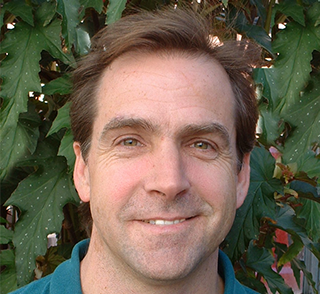
CIM Fellowship
2007CIM Distinguished Lecturers
Barlow Medal for Best Geological Paper 2010
In recognition of an excellent paper entitled “Characteristics of Mineralization at the Main Zone of the Clarence Stream Gold Deposit, Southwestern New Brunswick, Canada: Evidence for an Intrusion-Related Gold System in the Northern Appalachian Orogen.”
Barlow Medal for Best Geological Paper 2008
In recognition of an excellent paper entitled "The Gold-rich Louvicourt volcanogenic massive sulfide deposit, New-Brunswick: A Kuroko analogue in the Bathurst Mining Camp.”
David R. Lentz received his B.Sc. (1983) and M.Sc. (1986) degrees in geology from the University of New Brunswick (UNB) in Fredericton. He completed a PhD (1992) at the University of Ottawa and then worked with the Geological Survey of Canada for three years. In 1994, David joined the New Brunswick Geological Survey as its mineral deposits geologist. In 1999, he won the Harvey Gross Young Scientist Medal from the Geological Association of Canada (GAC). In 2007, he was awarded GAC’s Distinguished Service Award.
Since 2000, Lentz has held the economic geology chair at UNB (ORE Group), with a research focus on the petrogenesis of ore deposits. He has edited three best-selling ore deposits-related books for GAC and has published well over 100 journal articles and government publications. David is particularly well known for his short courses, workshops and field trips.
Distinguished Lecturer 2007-2008
Lecture Abstract
Developing the Orogenic Gold Deposit Model: Insights from R&D for Exploration Success
Our understanding of gold deposit-forming systems has changed dramatically over the past 30 years, mainly due to the recognition of the role that accretionary complexes and associated Wilson-style plate tectonics had in forming large metamorphic derived fluid systems, as well as specialized reduced magmatic hydrothermal systems in associ-ated intrusion-related gold deposits. Detailed research has built on these considerably to the point where predictive metallogeny and applied aspects of geology, geochemistry, and geophysics can be quite effective in exploration. Many of these developments have come from R&D on NSERC-supported funding to researchers in both academe and governments in Canada, as well as fundamental support from industry.
The lecturer will review these scientific developments converging on a robust unified model that has the potential for enhancing explo-ration strategies at all scales. The question is whether further R&D enhances exploration success for gold (or other related metals). If there is a future for R&D in this field, then further support from indus-try is needed to help drive all sectors involved in R&D worldwide.
 - dev.png)

